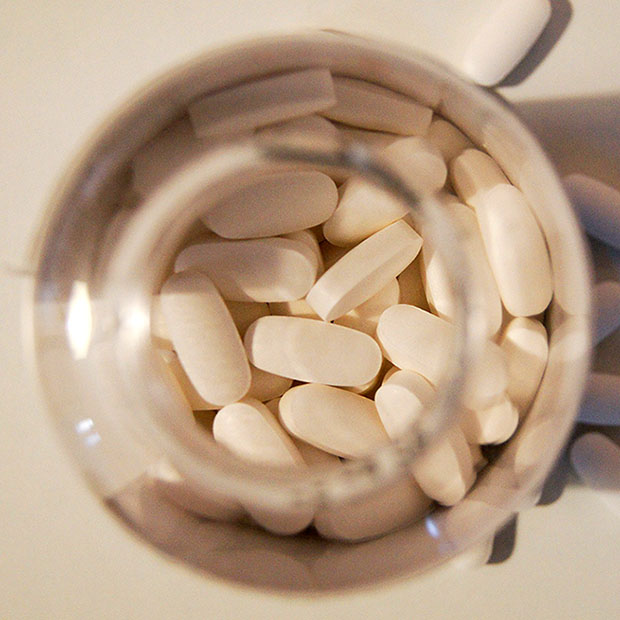Medicine’s Relationship With Oral Health

Potential side effects are a concern with pretty much every medication that exists.
We can all hear the drug commercial voice rattling off a list of them in our heads. Unfortunately, side effects from medications often overlap with oral health concerns, even when the medications aren’t treating conditions related to teeth and gums.
How Medicine Interacts With Oral Chemistry
In some cases, medications (or even vitamins) can be directly harmful to our teeth. This is a problem particularly with children’s medication, which tend to come in the form of sugary syrups and candy-like multivitamins.
Adult medicine is usually in pill form so it doesn’t have a chance to directly interact with teeth or gums, but not always. Inhalers may lead to oral side effects like oral thrush (painful or irritating patches of white fungus that grow on the tongue, the roof of the mouth, and the inside of the cheeks). A good preventative measure adults and children alike can take to avoid these direct oral side effects is to rinse with water after taking any of these kinds of medications or vitamins.
The More Indirect Effects of Medicine on Oral Health
Medications that make it past the mouth without causing direct harm can still have mouth-related side effects. One example is blood thinners, which can make the gums more vulnerable to bleeding while brushing and flossing. Gum tissue inflammation is a common side effect that can increase the risk of gum disease.
The most common oral side effect of medications, both prescribed and over-the-counter, is dry mouth. Not only can dry mouth make chewing and swallowing more difficult and uncomfortable, it can also leave the teeth and gums vulnerable to harmful oral bacteria. Saliva is the first line of defense we have against that bacteria. Without it, it’s much harder to protect against tooth decay and gum disease.
Other Weird Oral Effects Medicine Can Cause
In rare cases, osteoporosis drugs have been associated with compromised bone tissue in the jaw, which increases the risk of gum recession and tooth loss. Some medications can do strange things to our sense of taste, even if they don’t cause any real harm to our oral health. There might be a weird bitter or metallic aftertaste that lingers.
Discuss Your Side Effects With the Dentist and Your Doctor
It’s important to keep your health care professionals in the loop where side effects are concerned. If those side effects are happening inside your mouth, then make sure to tell the dentist as well as your doctor! It may be possible to change your prescription or dosage to minimize or completely eliminate the negative effects while maintaining the benefits of the medication, but only if the doctor knows what’s going on!
